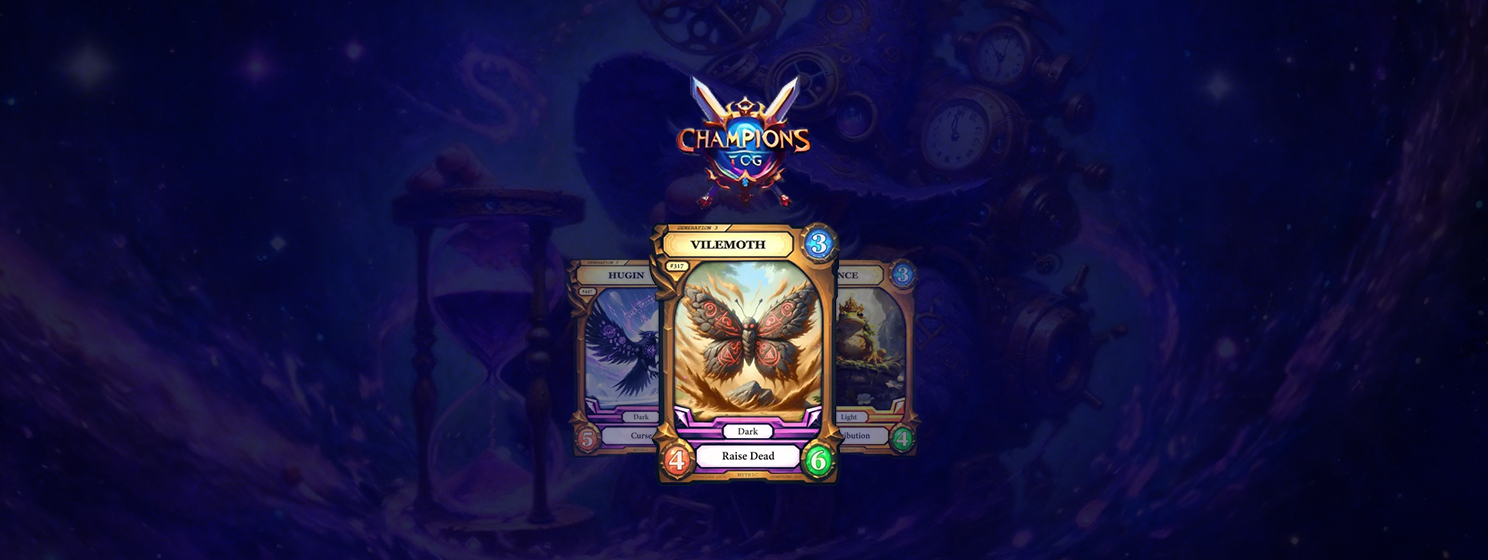|
Getting your Trinity Audio player ready...
|
Champions TCG is one of BSV’s most successful apps so far. On a recent X space Bitcoin and Blockchain Discussions episode, co-founders Miles Malec and Brett Banfe joined the conversation to discuss how it works, what’s coming next, and why the BSV blockchain is an essential component of the long-term vision.
Champions TCG leading without the massive VC funding
Many VC money is floating around in the blockchain space, and many games have cutting-edge features on their roadmaps. However, Champions TCG has delivered all of them and more without really going down the VC funding avenue.
Malec says this is just the start; Elemental Warfare just dropped, and there’s much more to come. The team has been working on getting into physical stores, and the cards and physical display just arrived, so they’re excited.
The cards will be bought in gift-card style in physical partner stores for cash. Malec believes this is essential because most gamers discover new games in physical stores. Most aren’t interested in Web 3.0, signing up for a digital currency wallet, etc.
The cards will cost $0.20 to manufacture, and the packaging will be cheaper. Gaming companies can copy this model and save on overhead. It’s entirely possible for a company like TOPPS to burn, print, and send cards straight to the customer, eliminating many costly processes along the pipeline.
How does the Champions TCG team measure success?
Host Alex Vidal notes that Champions TCG was responsible for a considerable number of BSV transactions for a long time. This indicates success, but he wants to know how the team measures that.
Malec answers that this is the best way to showcase BSV’s capabilities. He measures success in how well they have delivered a use case and shown the world what works. It’s a real solution to a problem; there’s no need to mention BSV or any other blockchain when selling it.
Banfe says physical store owners like the idea of capturing a customer for life, something the blockchain enables but which wasn’t possible before. Additionally, they’re getting squeezed by distributors and are often stuck with a product they might not be able to sell, and this model solves both problems. Champions TCG can give them the cards up front and they either sell or they don’t—no worries to the owner. For him, success is when everyone makes money and lots of it. He wants Champions cards to be the highest-margin item in game stores.
Malec highlights how they’re trying to build a model that other similar games can copy and use. No blockchain game has broken into physical stores yet, and when they succeed in doing so, they’ll show the world that this is the future of gaming. Card game players like to brag to friends, and word of mouth will accelerate the spread, he says.
New mini set, AR elements, and digital assets ownership
Malec reminds us that a new mini set of cards is coming up. They have a cherry blossom theme. They decided to release them after the attention Champions TCG got from a recent PC Gamer article. While the article was intended to rag on them for using AI art, no press is bad press, and it drew lots of attention to the game.
Looking to the future of blockchain gaming, Banfe points out how augmented reality features can be implemented, too. They’re working with Omniscape to do just that. Malec invites us to imagine Pokemon GO with additional features that allow you to collect cards and characters and trade them on a marketplace. Currently, Fortnite makes billions selling skins, but there’s no legitimate way for players and collectors to trade them. He highlights how the collectors market is much bigger than the in-game market, even though the latter is already worth $50 billion annually.
Banfe underscores how the ability to own digital assets is revolutionary. Having them on the public BSV blockchain removes the need for game builders to manage a marketplace. Furthermore, it’s more secure and reduces costs, too. There’s plenty of room for third-party businesses to pop up and build/manage marketplaces, allowing the game developers to get on with what they do best.
Would they want other people to develop games in which their cards can be used? Malec, speaking for himself, says that would be perfectly fine. The big-picture vision is total interoperability and the ability to move digital items across compatible games. He calls this the “Ready Player One” scenario and would be happy to see it happen.
To learn more about Champions TCG, the recent happenings in the digital currency markets, and what listeners asked in this conversation, check it out here.
Watch: Unlocking new game economy powered by BSV

 02-28-2026
02-28-2026 




